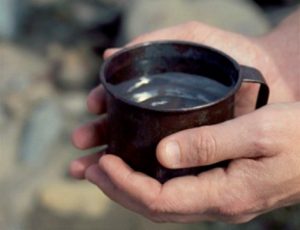 Today we are with Jesus when he meets a distraught woman with a special needs child. Maybe you have seen her, too, at the local Publix or Walmart or you might remember the parent of a child in your school, or a child-relative in your family or you’ve seen her trying to shop at Daystar. This is a mixed breed woman; a foreigner. Her family has disowned her. And when she told her boyfriend she was pregnant he fled.
Today we are with Jesus when he meets a distraught woman with a special needs child. Maybe you have seen her, too, at the local Publix or Walmart or you might remember the parent of a child in your school, or a child-relative in your family or you’ve seen her trying to shop at Daystar. This is a mixed breed woman; a foreigner. Her family has disowned her. And when she told her boyfriend she was pregnant he fled.
Somehow this courageous woman has survived as a single mother. But, when her daughter began having seizures, gossipy opinions surface: “She deserves what she gets. See what happens when you make the kind of decisions she’s made.” On top of that she is a woman in a society in which women have no real value or standing. To make matters worse she’s a screamer with a crazy kid. Now, she is out of options.
But, she’s heard that a Jewish miracle-worker is passing through the area. He’s reported to have authority over demons. She’s tried appealing to all the pagan gods of her culture, but none answered her plea. Maybe, just maybe, this Jesus is the answer to her prayers.
The woman approaches Jesus, requesting that he heal her demon-possessed daughter. At first Jesus says nothing. It appears he is ignoring her. The disciples ask Jesus to send her away, and Jesus seems to agree, remarking that he was sent to minister to the Jews alone.
But she’s already endured a series of obstacles that would threaten the best of us. She’s jumped social hurtles to ask a favor of Jesus and she will not be deterred.
She persists, paying homage to Jesus, and yet again Jesus denies her request. She can’t believe what her hears – is he being rude to her? Did he really refer to her using a Jewish word of derision for Gentiles, “dog.” But the woman cleverly turns Jesus’ own words against him. Only then does Jesus grant her request and heal her daughter.
So, let’s consider why Jesus would lead this mother through a humbling process for pursuing her request. He stays in conversation with her but seems harsh. Could it be Jesus used this encounter to help her develop a deep courageous faith that would sustain her for the rest of her life not just this one-time healing?
She is tenacious in her pleading. With the odds stacked against her, she pushes forward. When she gets knocked down by life’s circumstances and criticism, she gets back up. When others told her to quit, to get lost because she was wasting Jesus’ time, she continued to keep Jesus attention.
Notice she referred to Jesus as Lord, acknowledging that He is worthy of praise. Don’t miss the lesson that she praised Jesus in the midst of her pain. She is obviously a very humble woman. Perhaps Jesus had her in mind when he spoke the beatitude “Blessed are the meek, they will inherit the earth.” Never confuse humility with weakness. Pride would have been offended by the “dog” comment. Pride would have returned insult for insult, and pride would have gone away empty; without a miracle; without a healthy, whole child.
It’s a nice story but what does it teach us? Lessons in skilled, reverent, peaceful confrontation; tenacity, humility and focus on the important matter for winning a hearing with a happy outcome.
The past couple of weeks the world has been on edge, at the escalating acts of violence and the war of words between the North Korean regime and President Trump. The spiraling verbal threats may be the result of mounting public frustration with the lack of solutions to a serious problem but a frightened world cannot dismiss the situation as mere venting of empty words. Indeed, the harsh language appears to be increasing in the intensity of potential danger of a rash move being made by one side or the other. The world has seen too many incidents to ignore or downplay words that have had the power to do real damage. The old adage “sticks and stones may break your bones but words can never hurt you” has long been proven a false premise. But words can also have an equally powerful ability to bring about healing and reconciliation… something we all need to keep in mind.
Let us remember also in our intentions this weekend the people who are waiting in terror for Monday’s total solar eclipse. Thousands are gathering for the once in a life time event but others view it as a harbinger of doom.
Heeding the example of the Canaanite woman we must come to stand before God, united in our plea for an end of racism in our country and for peace in our world, for calmness to conquer brashness, humility to counter pride and tenacity to win out over discouragement.
There is a tale told about former President Andrew Jackson. His childhood friends were reminiscing about their childhood with Andy and expressing surprise at how successful he’d become considering all his flaws – he wasn’t as smart as some and many were stronger. They recalled how the class bully would throw Andy three out of four times when they wrestled. A listener asked: “What happened on the fourth time?”
Andy’s friend spoke up: “I guess that was Andy’s secret. He just wouldn’t stay throwed.”
Like the Canaanite woman and Andy, if life circumstances throw you down, don’t stay “throwed.” You’ve heard it said that Benedictine community life is a series of beginnings. Like a daruma doll, those weighted-bottom Japanese good-luck dolls, we just keep bouncing upright – as one author put is: we fall down and we get up. Or as the saying goes: seven times down; eight times up. So let us stand firm in praying for peace that we may hear the same response Jesus gave to the Canaanite woman: “Great is your faith! Let it be done for you as you wish.”






